Related Research Articles
Political Communication is a quarterly peer-reviewed academic journal covering political communication. It was established in 1980 and is published by Routledge on behalf of the American Political Science Association and the International Communication Association. The editor-in-chief is Claes de Vreese. According to the Journal Citation Reports, the journal has a 2018 impact factor of 4.339.

The Netherlands Institute for Advanced Study in the Humanities and Social Sciences (NIAS) in Amsterdam, Netherlands, is an independent research institute in the field of the humanities and social and behavioural sciences founded in 1970. The institute offers advanced research facility for international scholars of all of the humanities and social sciences. It is a member of Some Institutes for Advanced Study (SIAS) and the Network of European Institutes for Advanced Studies (NetIAS).
Martin Vinzenz Baldur Paul Maria (Martin) van Hees is a Dutch philosopher.

Maarten de Rijke is a Dutch computer scientist. His work initially focused on modal logic and knowledge representation, but since the early years of the 21st century he has worked mainly in information retrieval. His work is supported by grants from the Nederlandse Organisatie voor Wetenschappelijk Onderzoek (NWO), public-private partnerships, and the European Commission.
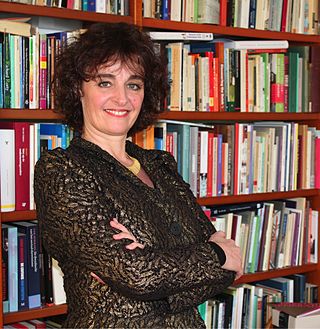
Patricia Maria (Patti) Valkenburg is a Distinguished Professor of Communication at the University of Amsterdam. She is the founder and director of Center for research on Children, Adolescents, and the Media (CCAM). She is a fellow of the International Communication Association. In 2011, she received the Spinoza Prize, the highest Dutch award in science.

Piet Gros is a Dutch chemist and professor biomacromolecular crystallography at Utrecht University. In 2010 he received the NWO Spinoza Prize for the elucidation of the three-dimensional structure of the C3 protein, which plays a central role in the complement system and contributes to innate immunity.
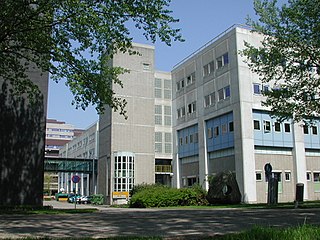
The Netherlands Institute for Neuroscience (NIN) is a research institute of the Royal Netherlands Academy of Arts and Sciences (KNAW) that carries out neuroscience research with special emphasis on the brain and visual system. Although the institute's focus is on understanding the fundamental mechanisms underlying brain function, its research spans the development, plasticity and aging of the brain and is often linked to clinical research questions. The research program is carried out in 17 research groups. In addition, the NIN includes the Netherlands Brain Bank and the Netherlands Sleep Registry.
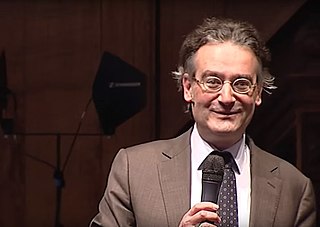
Balthassar Jozef Paul "Bas" van Bavel is a Dutch historian. He has held the chair of Transitions of Economy and Society at Utrecht University since 2011, and has been professor of Economic and Social History since 2007. His research has mostly focused on pre-industrial Northwestern Europe. He was one of the winners of the 2019 Spinoza Prize, the highest award in Dutch science.
Rivke Jaffe is a Dutch anthropologist by background, as of 2016 appointed professor of Urban Geography at the University of Amsterdam.

Marileen Dogterom is a Dutch biophysicist and professor at the Kavli Institute of Nanoscience at Delft University of Technology. She published in Science, Cell, and Nature and is notable for her research of the cell cytoskeleton. For this research, she was awarded the 2018 Spinoza Prize.

Eveline Crone is a Dutch professor of cognitive neuroscience and developmental psychology at Leiden University. Her research focuses on risky behaviors in adolescent humans during puberty and examines the function of those risks. For her research in adolescent brain development and behaviour, she was awarded the Spinoza Prize, the highest recognition for Dutch scientists, in 2017.
Irene J. F. de Jong is a classicist and professor of Ancient Greek at the University of Amsterdam. She is known for her pioneering work on narratology and Ancient Greek literature. She is a Fellow of the British Academy.

Sybren Otto is Professor of Systems chemistry at the Stratingh Institute for Chemistry, University of Groningen.
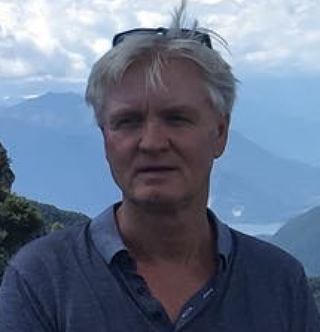
Berend (Bert) Poolman is a Dutch biochemist, as specialist in bioenergetics of microorganisms and membrane transport. He is a professor of Biochemistry at the University of Groningen and an elected member of the Royal Netherlands Academy of Arts and Sciences (KNAW) since 2009. Poolman is a pioneer in the field of bottom-up synthetic biology, that is, the construction from molecular building blocks of functional metabolic networks and autonomously operating functional systems, which are typical of living cells. Poolman is a lecturer in membrane biology and synthetic biology.
Jan Cornelis Maria van Hest is a Dutch scientist of organic chemistry, best known for his research regarding polymersomes and nanoreactors. He currently holds the position of professor of bioorganic chemistry at Eindhoven University of Technology and is scientific director at the Institute of Complex Molecular Systems. Among the awards he has received, he was one of the recipients of the 2020 Spinoza Prize.

Pearl A. Dykstra is a Dutch social scientist with a background in sociology, psychology, gerontology and demography. She is a specialist on intergenerational solidarity, aging societies, family change, aging and the life course, and loneliness.
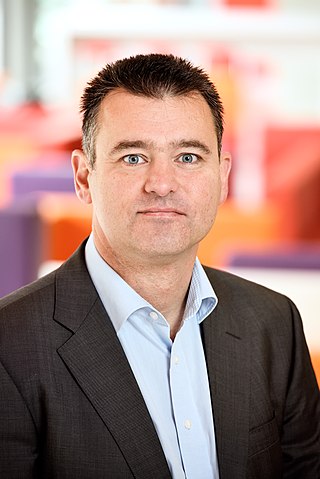
Emiel Jan Maria Hensen is a Dutch chemist and professor of Inorganic Materials and Catalysis at Eindhoven University of Technology. Hensen's research has focused on developing novel heterogeneous catalysts, kinetics and mechanism, and energy conversion. He leads a team of over 50 researchers working to improve "clean and sustainable chemical conversion processes for the production of fuels and chemicals."

Beatrice A. de Graaf is a Dutch history professor at the Faculty of Humanities at Utrecht University. Her areas of expertise are terrorism, international relations & security and the modern history of Europe.
Debby Bogaert is a Dutch physician who is Professor of Paediatric Infectious Diseases at the University of Edinburgh. Her research considers the physiology and pathophysiology of respiratory infections.
Reuven Agami is a Dutch cancer researcher. He is a professor of Oncogenomics at Erasmus University Rotterdam and head of the section of Oncogenomics at the Netherlands Cancer Institute-Antoni van Leeuwenhoekziekenhuis.
References
- ↑ Prof. dr. C.H. de Vreese, 1974 at the University of Amsterdam Album Academicum.
- ↑ "KNAW member Claes de Vreese". KNAW. Retrieved 20 June 2017.
- ↑ "Bio & CV". Claes de Vreese's official website. 2010-11-25. Retrieved 20 June 2017.
- ↑ "Employee profile prof. dr. C.H. (Claes) de Vreese". University of Amsterdam. Retrieved 20 June 2017.
- ↑ "Bio & CV". Claes de Vreese's official website. 2010-11-25. Retrieved 20 June 2017.
- ↑ "Employee profile prof. dr. C.H. (Claes) de Vreese". University of Amsterdam. Retrieved 20 June 2017.
- ↑ "Editorial board of Political Communication (journal)". Taylor & Francis Online. Retrieved 20 June 2017.
- ↑ ASCoR (5 May 2015). "Prestigious ERC research grant for Claes de Vreese". University of Amsterdam. Retrieved 20 June 2017.
- ↑ "Vici grants 2007". NWO. Archived from the original on 9 April 2017. Retrieved 20 June 2017.
- ↑ "Veni grants 2003". NWO. Archived from the original on 27 September 2016. Retrieved 20 June 2017.
- ↑ "Nils Klim prize winner Claes de Vreese". Holbergprisen. 2009-06-15. Retrieved 20 June 2017.
- ↑ "Science Foundation grant to Claes de Vreese". Center for Politics and Communication. 5 December 2008. Retrieved 20 June 2017.
- ↑ "Young Scholar Award". International Communication Association. Retrieved 20 June 2017.